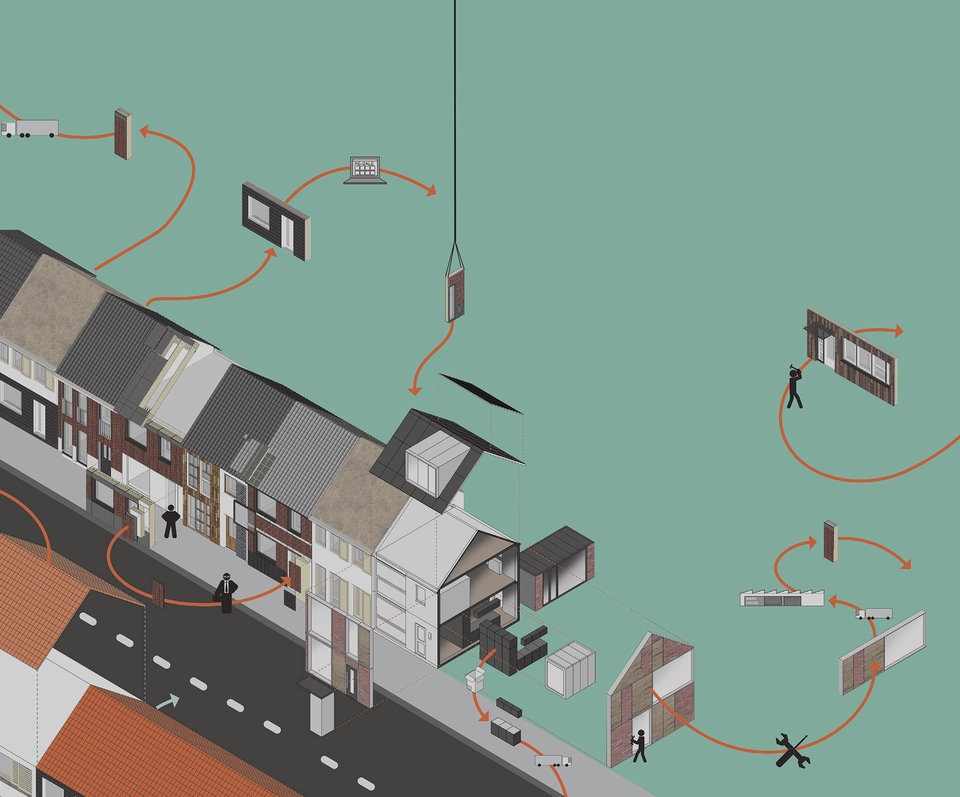From a young age, Jochem van de Laarschot is fascinated by technology: taking things apart, discovering how they work, and learning from it all. So, it’s no surprise when, in 2011, he chooses to attend TU Delft to further develop his passion. As a student in Systems Engineering, Policy Analysis and Management (TBM), Jochem immediately feels at home. “I’m good at approaching complex problems from multiple perspectives. It’s not just about hardcore technology for me, but rather the bigger picture,” he explains.
His decision to pursue the minor ‘Safety, Security and Justice’ proves to be pivotal for his career. It is here that his interest in cybersecurity is sparked. Jochem says: “During my bachelor’s, I specialised in the technical domain of Information & Communication, where cybersecurity was briefly touched upon. But it wasn’t until my minor that I really got to know the field. That’s when I realised I wanted to specialise in it. From that moment on, I focused the rest of my studies on cybersecurity, diving deeper into the subject with each project and paper.”
A remarkable graduation project
The most valuable part of his studies, Jochem says, was his graduation project with the FIOD (Dutch Fiscal Intelligence and Investigation Service), where he investigates the digital security measures cybercriminals use to protect themselves. “It was a highly quantitative research project, where I applied data science methods to complex datasets. I wanted to gain insight into how cybercriminals safeguard their activities. But it’s not just about the statistics; it’s about conceptual reasoning as well: What exactly are we seeing? How can we relate the data to theoretical concepts from literature and the world of criminal investigations?”
The combination of different research methods and the ability to connect various disciplines is what makes his project truly special. “Everything came together: the theories and courses from my degree, the complex data analyses, and the experience of working with an organisation like the FIOD. The multidisciplinary approach of TBM really shone through, making my graduation project a perfect culmination of my university studies.”
Life lessons beyond the classroom
In addition to his academic development, Jochem also considers his time in Delft as a period of personal growth. “Living in a student house with eleven others is an experience in itself. It’s your first time living independently, and you’re also exposed to a range of different opinions and perspectives. Delft is a real student city, with people from all over the world. Working together with people from different cultures during your studies gives you a glimpse of what it’s like in the professional world.”
A career in cybersecurity
After graduation, Jochem continues working as a researcher at both the FIOD and TU Delft, where he further explores the worlds of criminal investigations and cybersecurity. He soon moves on to Deloitte, where, as a cybersecurity consultant, he gets the opportunity to work on a variety of projects, ranging from technical challenges to governance and process-related issues.
Today, Jochem works as a Business Information Security Officer (BISO) at Schiphol. In this role, he assesses the security of IT systems and software within specific departments at Schiphol. “It’s a great challenge to protect an organisation like Schiphol from current and future digital threats. Cybersecurity is, of course, a key focus for Schiphol,” he explains. “It feels good to know that through my work, I’m contributing to a safer Netherlands.”
Societal impact and future ambitions
The tangible societal impact of his work is something Jochem values deeply. “At Deloitte, I particularly enjoyed working with public organisations. There, you really feel like you’re making a difference, helping to make the Netherlands a bit more (cyber)secure,” he shares. “I feel that same societal impact at Schiphol.”
Though he’s happy in his current role, Jochem is always looking to the future. “The IT world doesn’t stand still. New challenges are constantly emerging, such as the impact of AI on cybersecurity or new laws and regulations. This field allows you to keep learning and growing continuously. Whether you choose to remain a generalist, as TBM prepares you for, or to become a specialist, there’s always room to develop.”
Advice for current TBM students
Finally, the cybersecurity specialist offers his advice to current TBM students: “Find a subject that really interests you and tailor your study assignments to that. TBM gives you the freedom to apply (theoretical) concepts from the curriculum to topics you find fascinating. The curriculum is broad; you’ll get exposure to a variety of fields, and that’s incredibly valuable! That broad perspective is exactly what you need to approach problems from multiple angles. In the world of cybersecurity, that’s a unique skillset, and you should be proud of it.”














